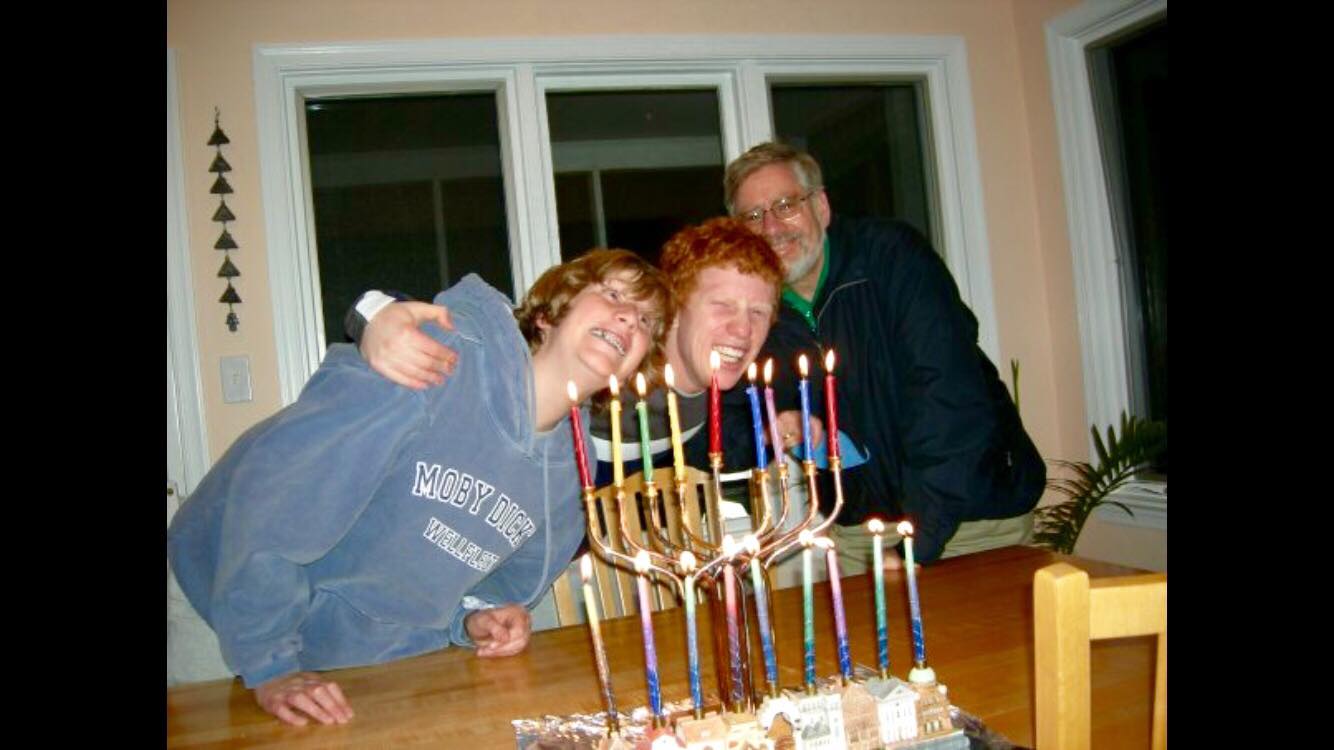I don’t always listen to my parents, but there are certain tidbits I’ll never forget. “Look both ways before crossing the street,” “Wash your hands before you eat,” and more recently “Don’t tell people you’re Jewish.”
With Chanukah behind us, I’d like to shine light on my Jewish experience. In 2009, I went off to college in Madison, Wisconsin, a liberal melting pot within the aged white cheddar hegemony of America’s Dairyland. As my parents prepared to return to the East Coast after getting me situated in my new home, my father offered departing words that have stuck with me since. He had just witnessed me accept a free few freezy pops from a church group representative before I politely explained I wouldn’t be attending the religious organization’s future events because I was Jewish.
“It’s probably a good idea not to tell anyone you’re Jewish,” he advised me. “You just don’t need to bring it up.”
I know his message was intended to protect me from anti-Semitism, or the hostility or discrimination against Jews as a religious or ethnic group. But, the warning struck a note with me because my years of Hebrew school and sermons during synagogue services had preached that there is nothing wrong with being a Jew; in fact being Jewish is great. But, there is a long history of Jewish people having to practice their faith in secrecy to avoid persecution. Not to mention, there’s plenty of research on “how Jews “became white folks” in the U.S. since World War II. Essentially, Jewish Americans typically moved up the social totem pole by embracing white privilege, as opposed to trumpeting their Jewish victimhood.
Although Jewish Americans have historically been overrepresented in the entertainment industry, many have hidden their heritage, adopting more culturally appropriate names like Bob Dylan (Robert Zimmerman), Jon Stewart (Jonathan Stuart Leibowitz), Woody Allen (Allan Konigsberg), Gene Simmons (Chaim Witz), and Rodney Dangerfield (Jacob Cohen). Other Jewish celebrities avoid drawing attention to their religious upbringing. Did you know Zac Efron, Drake, Mila Kunis, James Franco, Gwyneth Paltrow, Bruno Mars, and Scarlett Johansson are all “members of the tribe”?
So, as an 18-year-old kid living independently from my parents for the first time, I had to navigate how to be Jewish in a place where many of my classmates had rarely if ever encountered Jewish people.
Madison may be a hippy town in a Purple state, but plenty of students came from starkly conservative upbringings. Just 0.8 percent of Wisconsin’s population was Jewish in 2017, compared to 4 percent in my home state, Maryland, according to Jewish Virtual Library, and 6 percent in my Greater Washington area, according to Brandeis University. As a result, an unfamiliar stigma came with my seemingly foreign religion.
I had encountered attention due to my Jewish heritage before. Elementary school classmates would tease me by waving sausage patties in front of my face and spooning ice cream onto their bacon cheeseburgers to make them “even more unkosher.” At a Jesuit high school’s football camp one summer in middle school, fellow campers pegged me with footballs after rumor had spread that I was the lone Jewish kid around.
As an adult in college, however, this situation felt a bit different. There were plenty of opportunities to get involved with Jewish life on the UW-Madison campus including two private dormitories comprised almost entirely of Jewish first-year students, some of whom were high school classmates of mine. But, I went to Wisconsin because I wanted to branch out, and so I spent most of my time with other communities.
In Wisconsin, my peers’ perceptions were shaped by stereotypes and biased anecdotes. As soon as anyone in my dormitory hall discovered I was Jewish, encounters with this person afterward often started with me being introduced as, “This is Noah, my Jewish friend,” or “This is Noah…he’s Jewish.”
I’d sometimes have to deal with an onslaught of questions and jokes after this introduction ranging from naive to offensive. “But you still celebrate Christmas, right?” “Are you Kosher?” “Oh, you’re the Jewish kid! I can tell by your nose.” “Are your parents loaded?” “Why aren’t you wearing your little hat?” “Quit being so Jewish and buy me a drink.” “You can’t eat when the sun is out because of Ramadan, right?” “I knew a Jewish girl in my hometown. Do you know Sarah Goldstein? She ate these weird Matzah crackers. Do you eat those or are you not that Jewish?”
No wonder my dad warned me to keep my religion to myself after comments like these.
With Judaism comes many assumptions. At the University of Wisconsin, being a “coastie” was the codename for being rich, privileged, Jewish, and most likely from the suburbs of New York, Los Angeles, Washington, D.C., and Miami. So, I learned it was best to keep quiet about being Jewish publicly while continuing to celebrate religious ceremonies with only my family and Jewish friends. It seemed like a sustainable compromise. Yet, the passing as non-Jewish by identifying as atheist or saying I was only Jewish by blood meant sacrificing a significant part of who I am.
There are so many elements of Judaism that I love. The past week reminded me of the joy of lighting Chanukah candles with my family, even if we were dispersed among four states and two countries. Over the weekend, I began making latkes and applesauce at 1 a.m. for the friends I was hosting along with teaching them how to play dreidel. I recently met my second cousin for the first time over a meal to break our Yom Kippur fast. She later invited me to a relaxing Shabbat dinner where her religious friends helped me understand the perks of disconnecting from technology on Friday night and Saturday during the sabbath. Being Jewish means eating a spoonful of horseradish on Passover and trying to keep a straight face as you unsuccessfully convince your relatives they should try some.
I couldn’t imagine life without celebrating these ceremonies and traditions that bring my extended family together. Sure, there are elements of Judaism that I’m less fond of, but I choose to the level of religiousness and spiritual connection that keeps me happy. Despite the stigma, I have always felt that America is a safe place to practice Judaism.
That all changed when Donald Trump became President.
The Trump regime has ushered in a new era of xenophobia, misogyny, racism, transphobia, and alt-right ideologies. Anti-Semitic incidents across the U.S. increased 57 percent to 1,986 incidents in 2017, according to an Anti-Defamation League report. The President refuses to admonish neo-Nazis, white supremacists, and other groups spewing hateful speech against disenfranchised populations. In fact, Trump sympathizes with bigoted aggressors, going so far as to label them victims.
The religious identity of young Jewish Americans is waning as more and more deem themselves Jewish only by ethnicity or culture, rather than their theology. But, America’s Jewish population cannot remain silent. Jewish Americans cannot simply blend in any longer.
Temple University Feinstein Center for American Jewish History Director Lila Berman, Ph.D., explained that Jewish Americans are facing a new historical chapter and must fight for all Americans to achieve social justice.
“[W]e will have to confront the fact that the Jewish story in the United States is still being written, and progress is not its inevitable conclusion,” Berman wrote in a Washington Post op-ed. “Perhaps free from exceptionalism, we may discover a new path toward justice and equality for all, without exception.”
As an able-bodied, heterosexual, white man in America, there are few instances where I feel marginalized. Perhaps that’s why I’ve found it easier to keep my Jewish faith invisible over the years. I would avoid bringing attention to any characteristic that made me an “other.” But, I cannot hide who I am any longer.
I cannot idly stand by when Jewish cemeteries are being desecrated, when schools are being vandalized with swastikas and anti-Semitic slurs, when neo-Nazis march through the streets and murder an innocent protester in Charlottesville, Va., and when 11 worshipers are shot dead at a synagogue in Pittsburgh for no reason besides the fact that they were Jewish.
I am Jewish and I am proud. If I do not speak out against white supremacists who hate my religion or members of any minority group, who will speak out for me?
First, they came for the socialists, and I did not speak out—because I was not a socialist.
Then, they came for the trade unionists, and I did not speak out—because I was not a trade unionist.
Then, they came for the Jews, and I did not speak out—because I was not a Jew.
Then, they came for me—and there was no one left to speak for me.~Martin Niemöller
Written By: Noah Goetzel
Edited By: Jing Wu

Please do not hesitate to reach out to the MindReset community if you are in need of support or are interested in supporting others in an actionable and effective way.
The MindReset is a community of individuals who seek to inspire a social movement geared toward creating a more Supportive, Inclusive, Compassionate, and Kind society where anyone and everyone has the opportunity to thrive.
FOLLOW US:
- Facebook: https://www.facebook.com/theMindReset/
- Instagram: @The_MindReset
- Twitter: themindreset
- Youtube: The MindReset
- LinnkedIn: The MindReset
- #TheMindReset #TMR #SICK
- e-mail: themindreset@gmail.com


